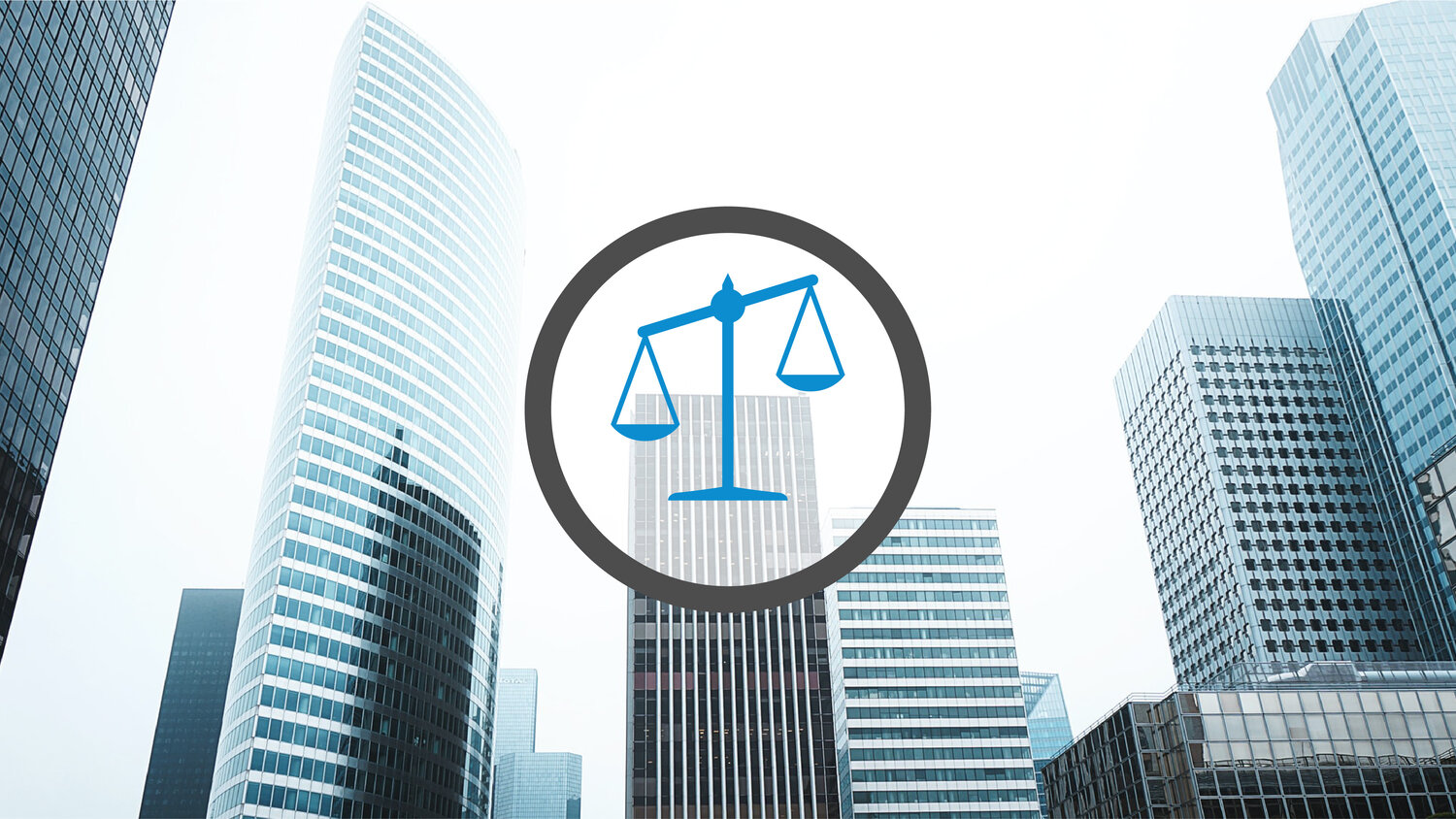Investing in commercial real estate (CRE) represents a significant opportunity for investors looking to diversify their portfolios beyond traditional investments like the stock market and residential properties.
Commercial real estate encompasses a variety of property types, including office buildings, retail spaces, industrial properties, and multifamily apartment buildings.
For those new to commercial real estate investing, understanding the basics, from identifying lucrative commercial property investments to managing the nuances of commercial leases, is essential for success.
This article provides a foundational guide for aspiring commercial real estate investors, highlighting key strategies and considerations for navigating the CRE market effectively.
1 - Understand the Types of Commercial Properties
Commercial real estate is a broad category with several sub-sectors, each with unique characteristics and investment potential. Office spaces, retail spaces, industrial properties, and multifamily properties are among the most common types of commercial real estate.
Each asset class serves different commercial tenants and has distinct lease structures, management requirements, and income potentials.
For example, office buildings might offer long-term contractual leases, while retail tenants in a strip mall could have varying lease terms based on foot traffic and location desirability.

2 - Research the Market
Conducting thorough market research is crucial before diving into commercial real estate investments.
Understanding the real estate market dynamics, including demand and supply in the desired area, average purchase price, rental rates, and economic volatility, can significantly impact investment decisions.
Real estate investors should also monitor recently sold properties to gauge market trends and potential capital gains.
3 - Assess Financials and Conduct Due Diligence
Investing in commercial property requires a significant amount of capital upfront, often more than needed for residential real estate. Prospective investors should carefully assess their investment strategy, including the loan-to-value ratio, expected passive income, and real estate taxes.
Conducting due diligence on commercial property—including property inspection, lease review, and financial analysis—is critical to uncover potential risks or liabilities.
4 - Explore Financing Options
Financing commercial real estate can differ significantly from residential properties. Commercial loans often come with higher interest rates and shorter amortization periods.
Investors might consider real estate investment trusts (REITs) as an alternative investment method, offering a way to invest in commercial real estate without owning physical properties.
Understanding the tax code and potential tax benefits, such as deductions on property insurance and interest payments, can also influence financing decisions.
5 - Leverage Professional Expertise
Navigating the commercial real estate sector can be complex, making engaging with professionals specializing in this area beneficial.
Real estate agents, property managers, and tax advisors can provide valuable insights into buying commercial property, managing tenants, and optimizing investment portfolio performance.
Their expertise can be especially crucial in identifying properties with long-term contractual leases or managing commercial leases effectively.
6 - Consider Diversification and Risk Management
Commercial real estate investing involves various risks, including economic volatility, negative cash flow, and real estate market conditions changes.
Diversifying your investment across different property types and geographic locations can help mitigate these risks.
Understanding the implications of capital gains tax and structuring deals to minimize tax liabilities is also essential to risk management.
Stay Informed on Market Trends
The commercial real estate market is constantly evolving, influenced by factors like historically low-interest rates, technological advancements, and shifts in consumer behavior.
Staying informed on these trends and legislative changes affecting commercial investments and real estate taxes can help investors make timely and informed decisions.
How to Get Started in Commercial Real Estate Investing

Getting started in commercial real estate investing involves several key steps.
First, educate yourself about the different types of commercial properties and how they are valued differently from residential real estate. Attend seminars, read books, and follow industry publications to understand the CRE market deeply.
Next, assess your financial capacity and investment goals. This may involve speaking with a financial advisor to understand how commercial real estate fits into your investment portfolio. Networking with other commercial real estate investors and professionals in the industry can also provide valuable insights and opportunities.
Lastly, I'd like you to start small by considering single commercial properties or commercial property crowdfunding to minimize risk as you learn the ropes.
Risks and Rewards of Commercial Real Estate Investing
Commercial real estate investing comes with its set of risks and rewards. On the reward side, investors can enjoy higher income potential through passive income, long-term contractual leases, and capital gains.
Commercial properties offer more attractive rental yields and inflation protection than residential properties. However, the risks include economic volatility, which can significantly impact commercial tenants' ability to pay rent, and the complexity of commercial leases and property management.
Commercial real estate investments often require more capital and involve higher due diligence costs. Understanding these risks and rewards is crucial for making informed investment decisions.
Residential vs. Commercial Investments
Comparing residential and commercial investments reveals distinct differences. Residential properties typically involve lower initial investments and more straightforward financing options, making them accessible to a broader range of investors.
They also offer more liquidity and a larger pool of potential tenants. However, commercial properties generally provide higher rental incomes, longer lease terms, and the opportunity to pass most property expenses to tenants through triple net leases.
The trade-off includes a higher barrier to entry, more complex property management, and sensitivity to economic conditions affecting businesses.
Commercial Property Crowdfunding
Commercial property crowdfunding has emerged as a novel way for individual investors to participate in commercial real estate without the need for substantial capital. This approach pools money from multiple investors to purchase a share of a commercial property.
Crowdfunding platforms offer access to various commercial deals, including office buildings, retail spaces, and industrial properties. While this method lowers the entry barrier and offers diversification, investors should be aware of the platforms' fee structures, the illiquidity of investments, and the specific risks associated with each property.
Understand How Commercial Real Estate Is Different

Understanding how commercial real estate differs from other investment types is essential for success in this field. Commercial investments are primarily valued based on their income-generating potential, considering the rental income, lease structure, and quality of commercial tenants.
Additionally, financing commercial properties involves more complex underwriting processes, with loan terms heavily influenced by the property's performance. The success of commercial investments also depends on broader economic factors, requiring investors to have a good grasp of market trends and financial volatility.
Unique Benefits of Investing in Commercial Property
Commercial property investment offers unique benefits not typically found in other investment vehicles. One of the most significant advantages is the potential for long-term contractual leases, which provide a stable income stream and reduce tenant turnover.
Commercial tenants are often responsible for property maintenance, taxes, and insurance, lowering the property owner's expenses. Additionally, commercial real estate offers opportunities for value appreciation through property improvement and strategic management.
Finally, investing in CRE can provide tax benefits, including deductions for depreciation, interest expenses, and other related costs, further enhancing the attractiveness of commercial property investments.
Features of commercial real estate properties

Commercial properties have distinct features that differentiate them from residential properties and make them attractive investment opportunities. Understanding these features can help investors, tenants, and property managers navigate the commercial real estate market more effectively. Here are some key features of commercial real estate properties:
1. Diverse Property Types
Commercial real estate encompasses various property types, each serving different business purposes. Major categories include:
Office Spaces: These can range from skyscrapers in city centers to suburban office parks.
Retail Spaces: Includes shopping centers, malls, storefronts, and mixed-use buildings where retail and residential spaces coexist.
Industrial Properties: Encompasses warehouses, distribution centers, manufacturing facilities, and flex spaces that combine industrial and office use.
Multifamily Properties: Although residential, apartment complexes are often considered commercial properties from an investment perspective.
Particular Purpose: Hotels, healthcare facilities, educational buildings, and self-storage units fall into this category.
2. Lease's Structures
Commercial properties often have complex lease agreements with terms that can extend for several years, providing longer-term stability in cash flow. Types of leases include:
Net Lease: Tenants pay a base rent plus one or more of the property’s expenses, such as property taxes, insurance, and maintenance.
Double Net Lease: Tenants are responsible for property taxes and insurance.
Triple Net Lease: Tenants pay all or most of the property expenses, including taxes, insurance, and maintenance, in addition to rent.
Gross Lease: The landlord pays for the property's operating expenses, which are included in the fixed rent.
3. Investment and Yield
Commercial real estate is known for providing higher yields and returns on investment than residential properties due to longer lease terms and the ability to pass operating costs to tenants.
4. Valuation Methods
Commercial properties are typically valued based on their income-producing potential, using the capitalization rate (cap rate), which measures a property's annual return on investment, or internal rate of return (IRR) for more complex analyses.
5. Financing Options
Financing commercial real estate can be more complex and often requires higher down payments and interest rates than residential real estate. Lenders will closely examine the property's income-generating ability and the borrower's creditworthiness.
6. Operational and Management Demands
Managing commercial properties can be more demanding, involving detailed lease negotiations, property maintenance, relationships with multiple tenants, and adhering to stricter zoning laws and regulations.
7. Economic and Market Sensitivity
Commercial real estate performance is closely tied to the broader economy's health. Employment rates, consumer spending, and economic growth can significantly impact occupancy rates and rental income.
8. Tax Benefits and Depreciation
Investing in commercial real estate can offer significant tax advantages, including deductions for depreciation, interest on mortgages, and other operating expenses, potentially enhancing the investment's overall profitability.
9. Risk and Reward Profile
While commercial real estate can offer higher returns, it comes with higher risks, including market volatility, tenant turnover, and regulatory changes. Investors must conduct thorough due diligence and market research to mitigate these risks.
Understanding these features is crucial for anyone involved in commercial real estate, whether you're an investor, a business owner looking for commercial space, or a property manager. Each element contributes to the unique nature of commercial real estate investing and management.
Conclusion
Investing in commercial real estate offers the potential for substantial returns, but it requires a strategic approach and a thorough understanding of the market's complexities.
Aspiring commercial real estate investors can successfully navigate the CRE market by conducting comprehensive research, leveraging professional expertise, and employing a cautious investment strategy.
Whether considering your first commercial property investment or expanding your investment portfolio, the key to success lies in due diligence, market knowledge, and effective risk management.
Related Articles:
Commercial and Residential Real Estate in Istanbul's Business Hubs
From Villas to Apartments: Diverse Real Estate Investments in Istanbul



